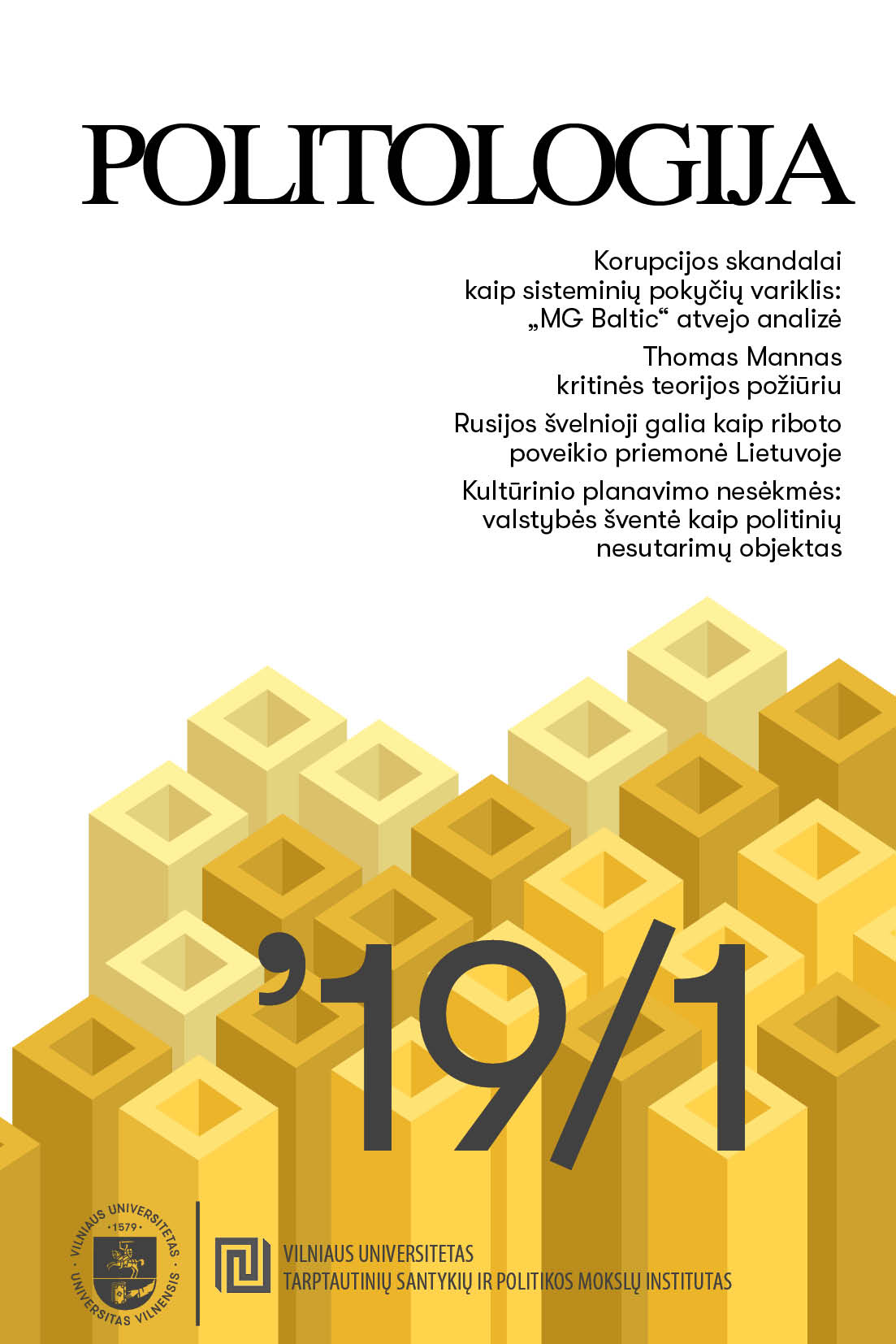Thomas Mannas kritinės teorijos požiūriu
Thomas Mann from the Perspective of Critical Theory
Author(s): Andrius BielskisSubject(s): Aesthetics, German Literature, Ancient Philosphy, Theory of Literature
Published by: Vilniaus universiteto leidykla & VU Tarptautinių santykių ir politikos mokslų institutas
Keywords: Thomas Mann; critical theory; Aristotle; Karl Marx; literature; politics;
Summary/Abstract: The paper analyzes Thomas Mann’s literary work from the perspective of critical theory. By briefly discussing an alternative conception of critical theory, it emphasizes the importance of Karl Marx, Aristotle, and normativity to social and political theory. The paper argues that we need to conceptualize normativity in Aristotelian rather than Kantian terms, that is, by reinterpreting the tradition of the Greek notion of aretē (excellence). Hence the importance of Aristotle’s ethical reflections on the flourishing of human life and of the political community. Marx is important because he provided a historically informed analysis and critique of the socioeconomic structures of modern society. Marx also gave birth to a new paradigm for social sciences and humanities, a paradigm alternative to positivism and phenomenology. Its main premise is that social and political theory must articulate the normative notion of social emancipation and criticize society and its social structures by drawing on this notion of emancipation. Thomas Mann is interesting and important from the point of view of critical theory; among other things, he provides a literary critique of the European bourgeois society and its way of life. As an illustration, Thomas Mann’s dialectic of eroticism and death in the life of the bourgeois iron cage is also analyzed (the dialectic that we find in Buddenbrooks, Death in Venice, and The Magic Mountain).
Journal: Politologija
- Issue Year: 2019
- Issue No: 1(93)
- Page Range: 36-59
- Page Count: 24
- Language: Lithuanian

